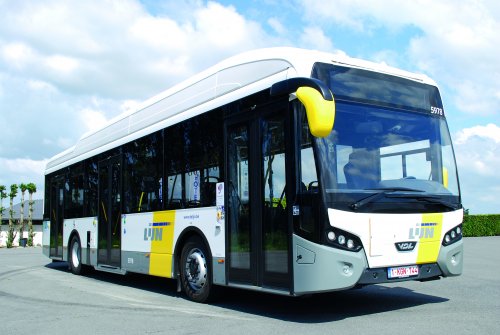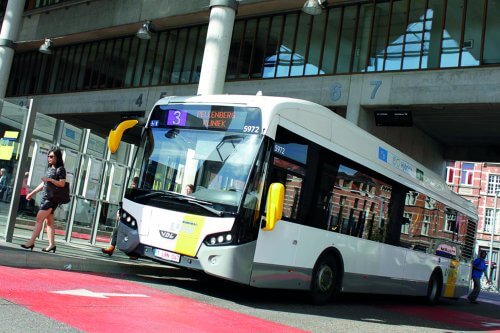BELGIUM
De Lijn, the public transport operator in the Flemish part of Belgium, has made an large step towards becoming emission-free in urban areas. Its Board of Directors has approved an order for 44 new articulated plug-in e-hybrid buses and confirmed the upgrade of 280 hybrid buses into e-hybrids with extended zero-emission range to contribute towards improving air quality.
“By deploying these buses, De Lijn comes even closer to zero-emission in urban areas, with the final goal of emission-free service in the whole of Flanders,” said Lydia Peeters, Flemish Minister of Mobility and Public Works. Since the new Flemish government took office in 2019, the Minister has been working towards a zero-emission fleet for De Lijn, allocating €93 million of her EU Covid-19 recovery budget towards a greener fleet of electric buses and associated charging infrastructure.
De Lijn’s first hybrids were introduced in 2009 and it currently operates 530 hybrid buses. “The main advantage of e-hybrid buses over regular hybrids lays in their battery capacity,” Lydia said. “With regular hybrids, that capacity is limited: while they accelerate emission-free from standstill, their low-emission diesel engine kicks in after about 400m to recharge their battery pack. With e-hybrids, their battery capacity is expanded, so that they can drive fully electric for an uninterrupted for between 15 and 100km.”
The De Lijn Board’s decision means that Flemish operators will have 150 e-hybrids with a 15km electric range, 90 with an e-range of 30km and 84 articulated e-hybrids with a 100km uninterrupted electric range. The battery packs of these buses will be charged in depots at night and during the day when the e-hybrids return for short periods. De Lijn said that it only purchases green electricity for its depots. The batteries may also be recharged outside urban areas via their low-emission Euro VI diesel engines.
The Minister continued: “The Flemish region of Belgium invests heavily in sustainable transport. This announcement is yet another contribution towards meeting climate change targets. This is a first but important step to implement zero-emission traffic in the whole of Flanders in general and in its urban areas in particular. The EU’s recovery assistance will enable us to accelerate the introduction of emission-free buses into the De Lijn fleet. In practice, the support means that our 324 e-hybrids will be able to drive longer distances within urban areas without any emission, which in turn will improve air quality in the most densely populated urban areas.”
234 of the 324 e-hybrids are articulated buses. De Lijn’s Director General Ann Schoubs explained: “At this moment, the market cannot supply us with articulated electric buses with sufficient zero-emission range to meet our network requirements. As articulated buses represent a significant part of our fleet, De Lijn is keen to introduce a greener solution for this bus type in order to improve air quality soonest.”
De Lijn is the first public transport operator to invest heavily into e-hybrids with extended zero-emission range. The operator said its approach is being followed closely by its European counterparts and by the UITP, the International Association of Public Transport.

DE LIJN


